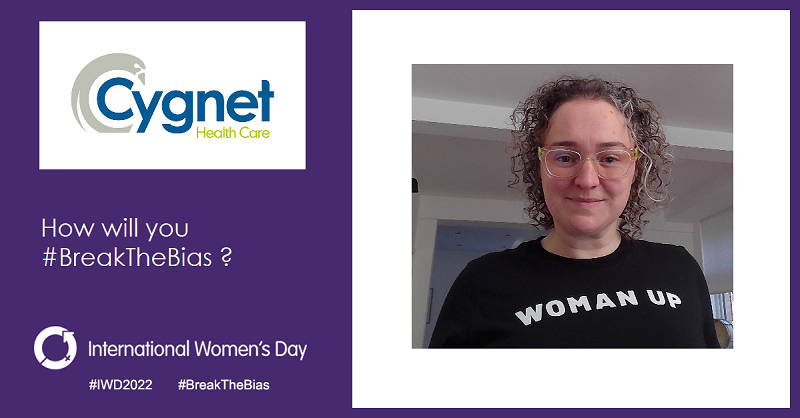
A world free of bias, stereotypes, and discrimination.
A world that is diverse, equitable, and inclusive.
A world where difference is valued and celebrated.
Together we can forge women’s equality.
Collectively we can all #BreakTheBias.
https://www.internationalwomensday.com/
One of the first podcasts I ever fully engaged with was the Guilty Feminist, started by two comedians, Deborah Francis-White and Sofie Hagen to look at some of the contradictions in trying to be a good feminist while also just existing in the current climate. They normally start the episode with a round of ‘I’m a feminist but…’ where guests can confess their own contradictions from recent interactions.
Having seen the theme for this year’s International Women’s Day #BreakTheBias, I thought immediately of my own ‘I’m a feminist but…’ Despite knowing about, and owning the Sunday Times Bestseller book on exactly this topic – Invisible Women: Exposing Data Bias in a World Designed for Men, I have still not read it.
I’m a feminist but… …I have prioritised reading science fantasy over educating myself about gender bias!
So for International Women’s Day 2022 I am making a public pledge that this will be the next book I read. In the meantime, what do we know about gender bias and how it’s affecting women in the UK, particularly in relation to physical and mental health experiences and outcomes?
It is well documented that more women than men report symptoms of common mental health disorders (in 2014 it was 1 in 5 women compared to 1 in 8 men). Some evidence even suggests that this gap is actually increasing over time rather than decreasing. But why? That’s where COVID has provided some interesting data that has generated more insight into what might be causing this difference.
Evidence shows that women reported more deterioration in their mental health than men during April and May 2020, multiple studies have supported this finding. There is evidence that family and caring responsibilities may have played a role in this difference of experience between genders. Although not the case in all households, many women are likely to have had greater disruption and have had to make bigger adjustments to manage the additional domestic load imposed by COVID and lockdown. Home-schooling anyone? Working from home? Keeping everyone in a household 24/7? Increased housework? Family catering needs increased? It’s important to recognise that this isn’t the case across the board, in many households men made massive adjustments too.
As well as the domestic disruption inflicted by COVID, we know that women are at a greater risk of sexual violence than their male counterparts, and that violence against women increased during the pandemic. It is also well-reported that women tend to have bigger social networks than men and that they have a positive impact on mental health – most of us didn’t do too much socialising in April and May 2020. It is therefore perhaps unsurprising that during the pandemic women reported a greater deterioration in their mental health than men did.
In a society where clinical trials still favour male participants, where women are far more likely to be misdiagnosed than men, where women are less likely to receive appropriate pain relief after major procedures than men, and where despite representing over 75% of the NHS workforce only 16% of CCG Chairs are women, is it any wonder that gender bias is felt everyday by women living in the UK?
Shining a light on some of these inequalities is important. We have seen so much social change in recent years that it is easy to become complacent, and assume that all the hard work fighting for equality is done. But some of the issues facing women today are deep-seated and will demand years of dedicated action to correct. It is important to note also that women living in poverty, trans women, black women, women from ethnic minorities, women with disabilities, gay women, and others can all face even greater challenges, as different sources of disadvantage and lack of power or privilege intersect.
So this International Women’s Day I’ll finally start reading that book, my question to you is, what small action will you take this year to redress the balance and #BreakTheBias?
Sources of further information if you are interested:
- Cambridge University Press, Gender discrimination, victimisation and women’s mental health
- House of Lords Library, Women’s health outcomes: Is there a gender gap?
- UCL, High levels of sexism could be fuelling poor mental health among women
- The Guardian, Finally the UK has noticed its rampant sexism in healthcare. What now?
- Evening Standard, Gender data gap
- Office for Health Improvement & Disparities, Gender Spotlight
- Wikipedia, Invisible Women: Exposing Data Bias in a World Designed for Men
- UN, Measuring the shadow pandemic: Violence against women during COVID-19